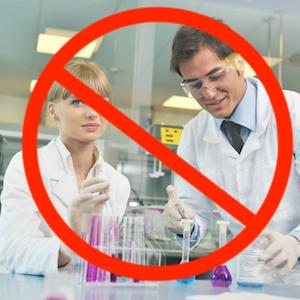The job ad is appalling.
NPR, which to its credit at least attempts to cover science and health, is looking for a new Science Editor. Unfortunately, actually being trained in science is not required for the job.
Under the qualifications section, the ad says, "Education: Bachelor's degree or equivalent work experience." Amazingly, not only is a background in science unnecessary, college itself is optional. Despite such a low bar, whoever gets hired for the job will be responsible for covering "consumer health trends, medicine, public health, biotech and health policy." Seriously?
The only substantive qualification in the ad is "broad and deep experience reporting and editing stories on health, medicine and science." But that's so vague, it could mean nearly anything. Whoever wrote "13 Amazing Sex Tips From Around The World" for Cosmopolitan would probably be qualified.
Journalists and editors pay lip service to the notion that society needs better science communication, but their actions prove they don't mean it. Why hire a Ph.D. or a person with a bachelor's degree in science when it's cheaper and easier to hire a social media intern who has spent the last few years copying-and-pasting press releases about scary toxins and miracle vegetables?
If you've ever wondered why science journalism is so incredibly bad, this is why. (It's also one reason why we ranked NPR's science coverage rather poorly.) But it's not just NPR. It's almost all of journalism.
KCTS, the PBS affiliate in Seattle, has a job ad for Science/Environment Producer. Once again, neither a background in science or even a college degree is required. Instead, the jaw-dropping ad reads:
"The ideal candidate will be an experienced field producer with a deep understanding of Northwest environmental issues, including urban sustainability and environmental justice."
In other words, the ideal candidate works for Greenpeace or Sierra Club in policy issues rather than accepting science.
A few years ago, I spoke with one of the head editors at The Economist. He told me that the newspaper rarely hires anyone with a journalism degree. Why? Because in Britain, journalists are expected to major in "something real." Then, they can be taught the craft of journalism on the job.
Until more media outlets adopt that very sensible standard, we can expect (science) journalism to continue to fail us miserably.




